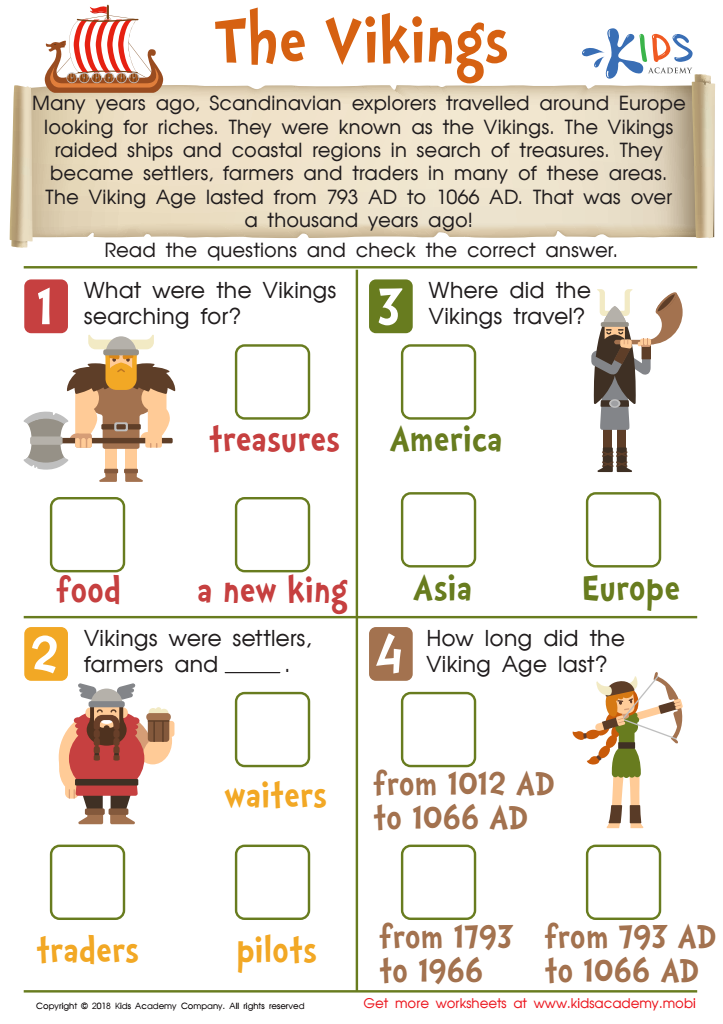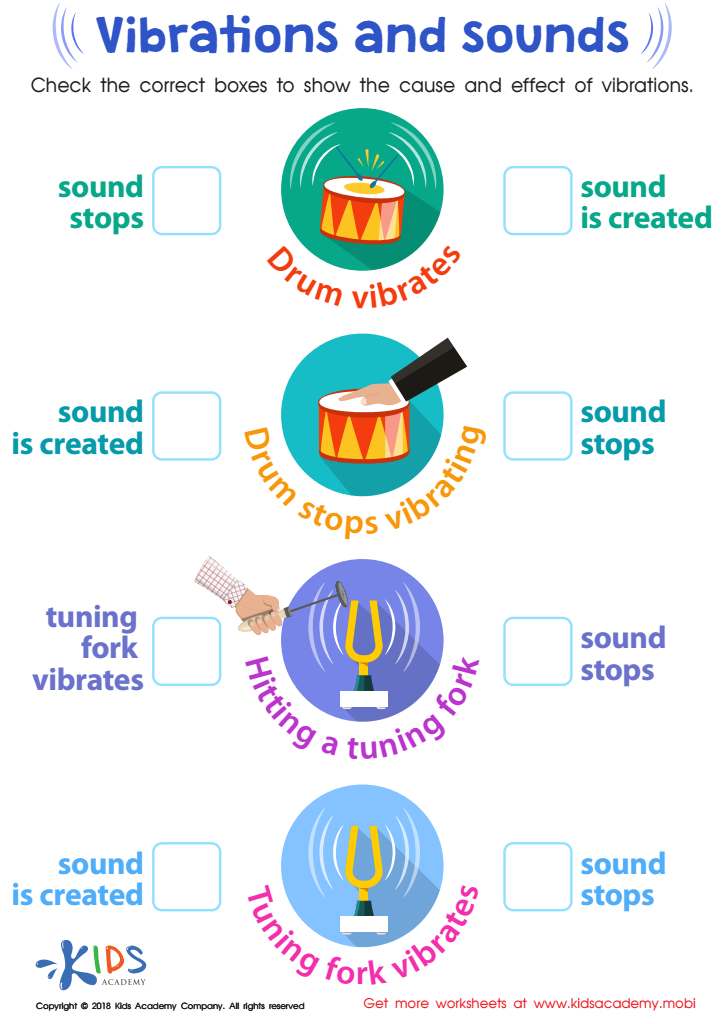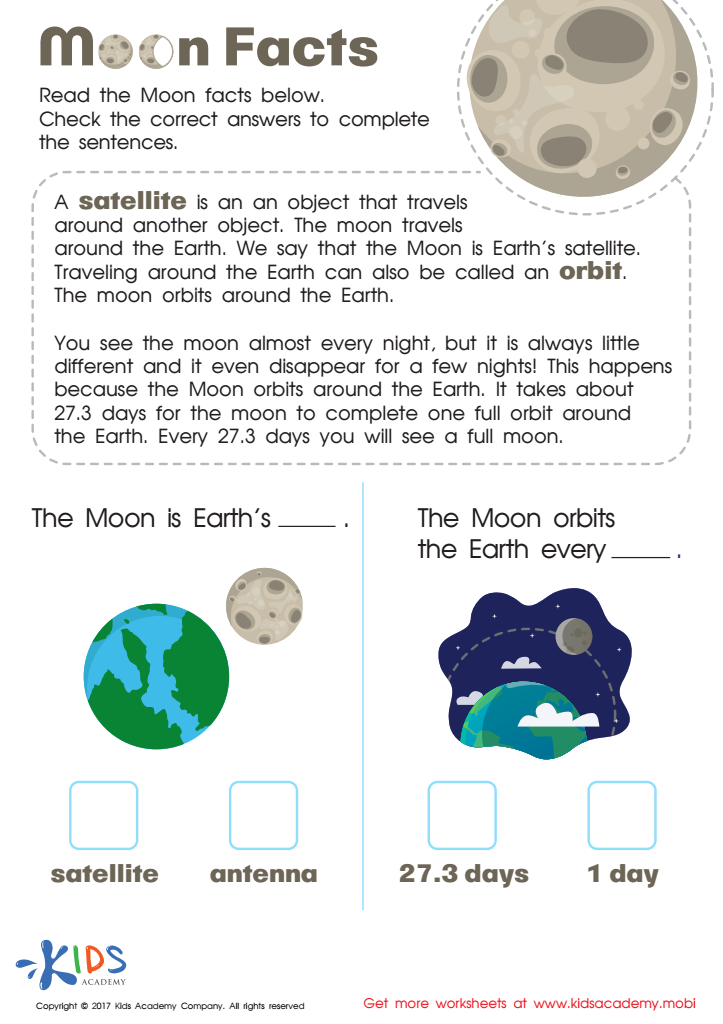Comprehension skills improvement Worksheets for Ages 6-8
3 filtered results
-
From - To
Enhance your 6-8 year old's reading abilities with our comprehension skills improvement worksheets. These engaging and educational worksheets are specifically designed to bolster young minds, encouraging deeper understanding and greater retention of reading material. Each activity challenges children to think critically and answer thought-provoking questions, honing their analytical skills while fostering a love for reading. Ideal for both classroom use and home practice, our comprehensive selection offers varied exercises to suit every young learner's needs. Boost your child's confidence and proficiency in reading today with these fun and effective resources!


The Vikings Worksheet


Vibrations and Sounds Worksheet


Moon Facts Worksheet
Improving comprehension skills for children aged 6-8 is crucial because it lays the foundation for all future learning and academic success. At this pivotal age, children transition from learning to read to reading to learn. Comprehension is not just about decoding words on a page, but about understanding and processing the information. Strong comprehension skills enable children to grasp the meaning behind the text, make connections to their world, and engage more meaningfully with what they read.
For parents and teachers, fostering these skills ensures that children develop the ability to think critically, solve problems, and grow in other subject areas, such as math, science, and social studies. When children understand what they read, they are more likely to become confident, motivated readers, enhancing their long-term educational outcomes. Poor comprehension skills, on the other hand, can lead to difficulties in school, impacting a child's self-esteem and academic trajectory.
By focusing on improving comprehension, parents and teachers instill a love for reading and learning. Activities that build comprehension—such as asking questions about the story, discussing characters’ motives, and predicting outcomes—support children's cognitive development and set the stage for lifelong academic and personal success. Prioritizing these skills during the formative years of 6-8 can make a profound difference in their overall development.

 Assign to My Students
Assign to My Students




















